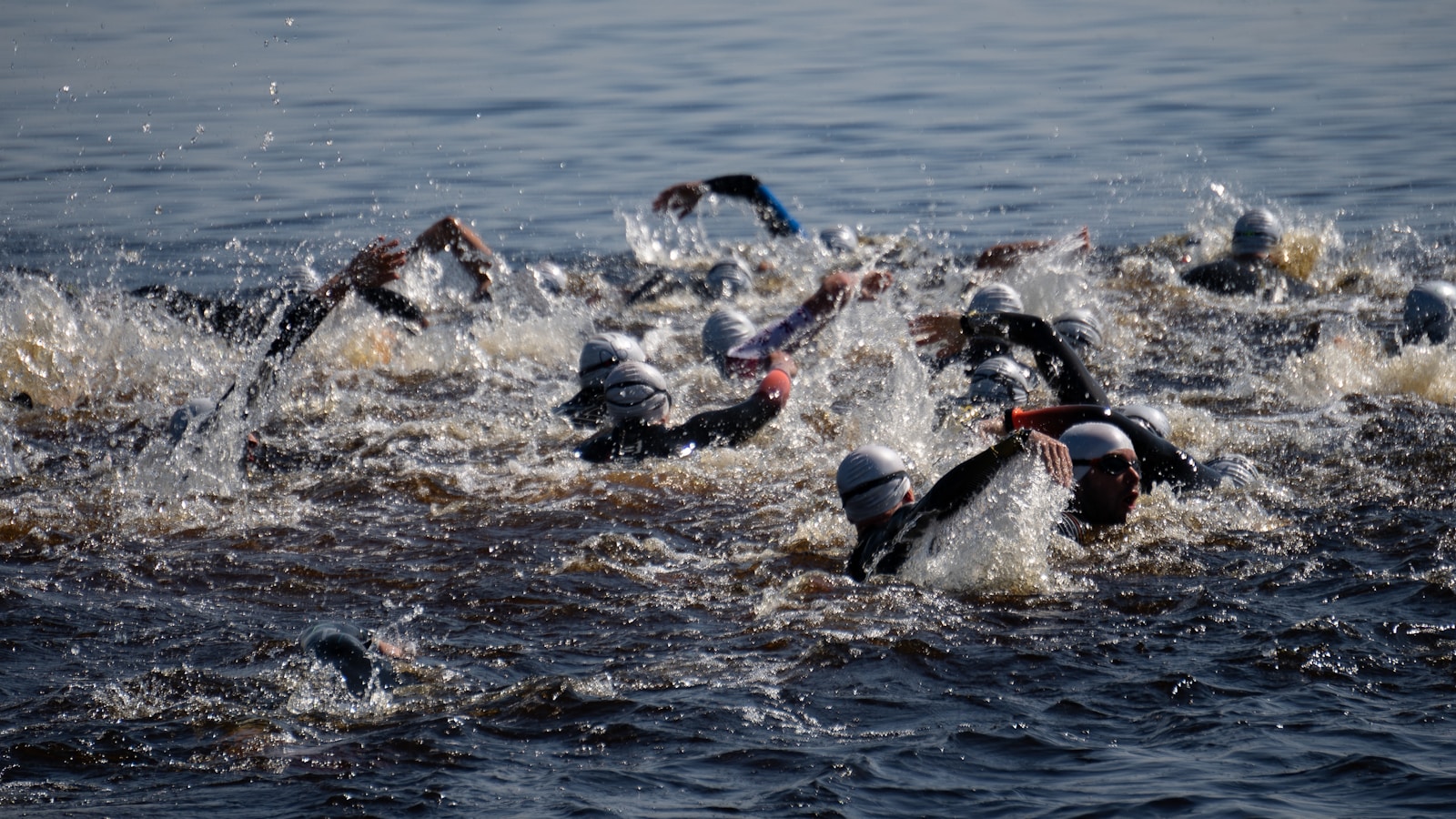
natación

swimming
Swimming is a sport or activity of propelling oneself through water using the limbs. It can be done either competitively or leisurely for exercise.
Example sentences using: natación
Yo disfruto mucho de la natación.

I enjoy swimming a lot.
This sentence means that the speaker gets a lot of pleasure from swimming. 'Disfruto' is the first person present tense form of 'disfrutar', meaning 'enjoy'. 'Mucho' means 'a lot', and 'la natación' is 'swimming'.
Voy a la piscina para la natación.

I go to the pool for swimming.
This phrase means that the speaker goes to the pool specifically to swim. 'Voy' is the first person present tense of 'ir', meaning 'go'. 'A la piscina' means 'to the pool', and 'para la natación' is 'for swimming'.
Tomé clases de natación el verano pasado.

I took swimming classes last summer.
This sentence means that the speaker attended swimming classes the previous summer. 'Tomé' is the first person past tense form of 'tomar', meaning 'took'. 'Clases de natación' is 'swimming classes', and 'el verano pasado' is 'last summer'.
La competencia de natación será la próxima semana.

The swimming competition will be next week.
This sentence announces that there will be a swimming competition the following week. 'Será' is the third person future tense form of 'ser', meaning 'will be'. 'La próxima semana' means 'next week'.
Es necesario el equipo de natación para la clase.

Swimming equipment is necessary for the class.
This sentence implies that you must have the appropriate swimming equipment to participate in the class. 'Es necesario' means 'is necessary'. 'El equipo de natación' is 'the swimming equipment'. 'Para la clase' is 'for the class'.
Mi padre me enseñó la natación cuando era niño.

My father taught me to swim when I was a child.
This sentence states that the speaker's father taught them how to swim during their childhood. 'Me enseñó' is the third person past tense form of 'enseñar', meaning 'taught me'. 'Cuando era niño' is 'when I was a child'.
Practico la natación todos los días.

I practice swimming every day.
This sentence implies that the speaker swims daily. 'Practico' is the first person present tense form of 'practicar', meaning 'practice'. 'Todos los días' is 'every day'.
La natación ayuda a relajarse.

Swimming helps to relax.
This sentence suggests that swimming is a way to achieve relaxation. 'Ayuda' is the third person present tense form of 'ayudar', meaning 'helps'. 'A relajarse' is 'to relax'.
La escuela ofrece un club de natación.

The school offers a swimming club.
This sentence states that there is a swimming club available at the speaker's school. 'Ofrece' is the third person present tense form of 'ofrecer', meaning 'offers'. 'Un club de natación' is 'a swimming club'.
La natación es una excelente forma de ejercicio.

Swimming is an excellent form of exercise.
This phrase means that the speaker believes that swimming is a great way to work out. 'Es' is the third person singular form of 'ser', meaning 'is'. 'Una excelente forma de ejercicio' is 'an excellent form of exercise'.